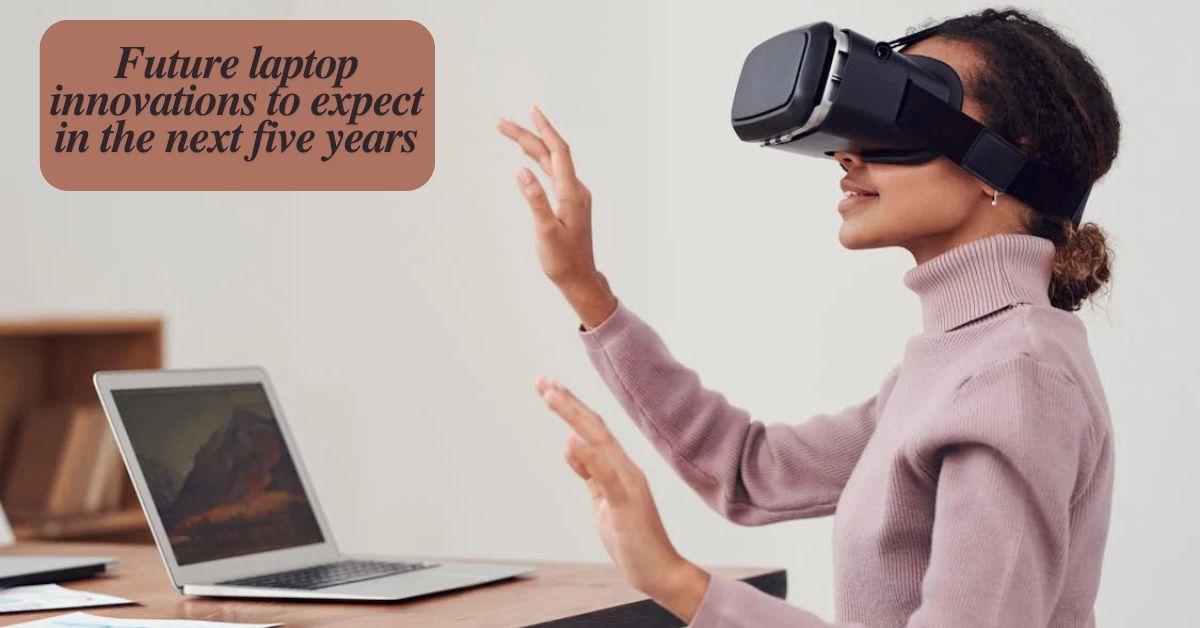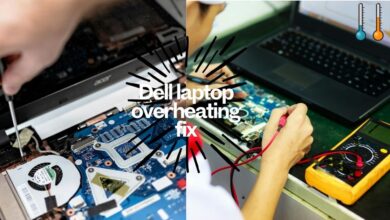Future Laptop Innovations to Expect in the Next Five Years

The technology industry is evolving rapidly, and future laptop innovations to expect in the next five years will redefine computing experiences. Advancements in AI, quantum computing, and display technology will transform laptops into more powerful, efficient, and adaptive machines. With a growing emphasis on portability and productivity, next-generation laptops will integrate cutting-edge materials and design elements to enhance durability and flexibility.
Quantum Computing and Hybrid Processing
One major advancement in future laptop innovations to expect in the next five years is AI-powered performance optimization. Artificial intelligence will analyze usage patterns and automatically adjust processing power, battery consumption, and system cooling. AI-driven assistants will enhance user experience by providing personalized suggestions, improving multitasking efficiency, and automating repetitive tasks. Machine learning algorithms will optimize system processes, ensuring seamless performance while reducing energy consumption.
Foldable and Flexible Displays
Quantum computing will influence future laptop innovations to expect in the next five years by offering unprecedented processing speeds. While full-scale quantum laptops may not be widely available yet, hybrid computing models will incorporate quantum processors to handle complex calculations. This advancement will significantly benefit industries like cybersecurity, data analysis, and scientific research, making laptops more capable of solving intricate problems faster.
Next-Generation Battery Technology
Foldable and flexible displays will be a revolutionary aspect of future laptop innovations to expect in the next five years. Manufacturers are investing in OLED and microLED technology to develop screens that are not only thinner but also more durable. Laptops with rollable or foldable screens will allow users to expand their display size when needed, improving portability without compromising productivity.
Enhanced Connectivity and Wireless Performance
Battery technology is another crucial focus in future laptop innovations to expect in the next five years. Solid-state batteries will replace traditional lithium-ion cells, offering longer battery life, faster charging, and improved safety. Energy-efficient components and AI-driven power management systems will optimize battery consumption, ensuring longer usage times with minimal energy waste.
Advanced Biometric Security Features
Enhanced connectivity features will drive future laptop innovations to expect in the next five years, improving wireless performance. Wi-Fi 7, 6G, and advanced Bluetooth technologies will enable faster data transfer speeds, reducing latency and enhancing overall connectivity. These improvements will support seamless cloud computing, remote work, and high-quality video conferencing without interruptions.
Sustainable and Eco-Friendly Manufacturing
Advanced biometric security will be a key highlight in future laptop innovations to expect in the next five years. Fingerprint sensors, facial recognition, and voice authentication will become more sophisticated, ensuring secure access to personal and professional data. AI-driven security features will detect and prevent cyber threats in real-time, protecting sensitive information from unauthorized access.
Augmented and Virtual Reality Enhancements
Eco-friendly manufacturing will play a significant role in future laptop innovations to expect in the next five years. Companies will focus on sustainable materials, recyclable components, and energy-efficient designs to reduce environmental impact. Biodegradable laptop parts, solar-powered charging options, and minimalistic packaging will contribute to a greener technology industry.
Modular Laptop Designs and Upgradability
Augmented Reality (AR) and Virtual Reality (VR) integration will enhance user experiences in future laptop innovations to expect in the next five years. AR-enabled laptops will improve interactive applications, while VR capabilities will support gaming, remote collaboration, and immersive learning experiences. These advancements will redefine entertainment, education, and professional workspaces.
Edge Computing for Faster Processing
Modular laptop designs will be another significant innovation in future laptop innovations to expect in the next five years. Users will have the flexibility to upgrade individual components, such as RAM, GPU, and storage, without replacing the entire device. This approach will extend the lifespan of laptops, reduce electronic waste, and allow customization based on user needs.
Advanced Cooling Technologies
Edge computing will enhance processing efficiency in future laptop innovations to expect in the next five years. Laptops will process data closer to the source, reducing reliance on cloud-based services and ensuring faster response times. This will be particularly beneficial for real-time applications, AI-based analytics, and IoT connectivity.
AI-Driven Voice Assistants and Personalization
Future laptop innovations to expect in the next five years will also include enhanced cooling technologies. Liquid metal thermal solutions and vapor chamber cooling will improve heat dissipation, allowing laptops to run at peak performance without overheating. AI-driven cooling systems will dynamically adjust fan speeds based on workload demands.
Customizable 3D-Printed Laptop Designs
Voice-activated assistants will become more advanced in future laptop innovations to expect in the next five years, allowing users to control functions with natural language commands. AI-driven voice recognition will enable hands-free operation, making laptops more accessible and convenient for diverse users.
Neural Processing Units for AI-Driven Tasks
Personalized computing experiences will be a major focus in future laptop innovations to expect in the next five years. AI will tailor device settings, user interfaces, and application recommendations based on individual preferences. Adaptive keyboards and customizable touchpads will enhance usability and productivity.
Conclusion: The Future of Portable Computing
With 3D printing advancements, laptop chassis designs will become more customizable in future laptop innovations to expect in the next five years. Users may be able to design and print their laptop casings, adding a new level of personalization to computing devices.
Neural processing units (NPUs) will play a vital role in future laptop innovations to expect in the next five years. These specialized chips will accelerate AI-driven tasks, improving real-time translation, video editing, and computational photography. NPUs will enhance deep learning capabilities and AI-based applications.
Future laptop innovations to expect in the next five years will redefine how users interact with their devices, blending AI intelligence with advanced hardware capabilities. As technology continues to evolve, these innovations will shape the future of portable computing, making laptops more powerful, sustainable, and user-friendly.
Also read: What are AI-powered laptops and how do they work?



